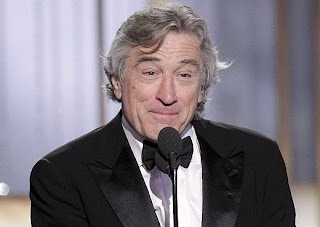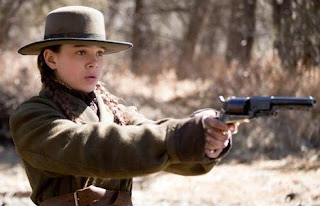Jason Statham is the quintessential action hero, a modern-day Stallone or Schwarzenegger, just without his surname brandished in boldly fonted steel at the top of his posters. He's got the looks, he's got the muscles, he's got the charm, and he's got the agility -- all that's missing is a voice rendered incomprehensible by the litres of testosterone running through his perfectly formed limbs.
Here, he's taking over from a moustachioed revenge-flick icon, the scowling Charles Bronson, in this remake of 1972's "The Mechanic." What is a mechanic, aside from the obvious definition? It's someone who fixes things, someone who fixes certain situations, someone who drowns a man in a swimming pool and makes it look like an accident. Like Michael Barrymore.

Arthur Bishop (Statham, "The Transporter") is a mechanic, and a damn good one. He knows everything there is to know about the business, and he knows exactly what he's doing. He works on his own and is very careful to not make any silly slip-ups. He kills people for money, a job he's comfortable with.
Harry (Donald Sutherland, "Dirty Sexy Money"), a bearded oldie in a wheelchair, is Arthur's close friend and mentor. When Arthur is handed an assignment to take down his disabled pal, he finds himself in a dilemma -- should he kill his veteran buddy or defy his unflinching boss (a slimy Tony Goldwyn, "Ghost")? He regrettably goes for the former.

Harry's funeral follows, in which Arthur meets the son of his deceased friend, Steve (Ben Foster, "Pandorum"). The rugged spawn is curious about the assassin's work, and Arthur reluctantly lets Steve become his apprentice of sorts. Arthur trains Steve, teaches him the tricks of the trade, and gives him one of his assignments to complete. Eventually, the two end up working together, the fact that Arthur killed Steve's father unbeknownst to the new recruit.
"The Mechanic" is filled with formula, its simplistic plotting refraining from pushing the boundaries of the action movie template. It's a clichéd "manly movie" that only wants to surge the adrenaline of nacho-chomping viewers. It's borderline brainless, dazzling with explosions and gunfire just for the Hell of it. And this is precisely the reason why the film works.

It's directed by Simon West, the hit-and-miss director of "Con Air" (hit) and "Lara Croft: Tomb Raider" (epic miss). Known for his entertainment-only flicks, West is doing nothing new here, though it's not like he's trying to. He's crafted a fun, nicely paced movie that's rarely uninteresting and will please those who know they'll be pleased by it.
He handles set-pieces well, as Arthur and Steve blast their way through violent action sequences with pistol-firing mayhem and car-destroying chaos. The film is not an all-out actioner, but when the guns are loaded and the engines are revved, it manages to squeeze out some tension and be explosively entertaining.

The Stath is on top-form here, back in the boots of a revolver-aiming tough-guy with a stubble as sharp as a newly-bought sewing needle. The "Crank" actor charms and intimidates with his steely glare, showing off his pecs in the thrilling opening scene -- all the ladies (and men) will be swooning and collapsing in the aisles of the cinema screens.
Foster is an ample sidekick, his character clueless about his partner's slaying of his beloved father. Steve is a vengeful rogue, wanting justice brought to his dear pop's murderer, living under the belief that the killer is a carjacker. The "3:10 to Yuma" actor brings his skilled acting chops to equal his Cockney-tongued co-star, showing himself to be more than just the angel who appeared in two scenes of "X-Men: The Last Stand." What was that about?

"The Mechanic" needs its bolts tightened in certain areas, but it pleases in terms of being a film in which villainous shooters are incompetent when aiming their guns at the runaway heroes. It's all bang-bang, boom-boom, for which it surprisingly functions well. This isn't West's next "Con Air," but it'll do.
7/10
















































